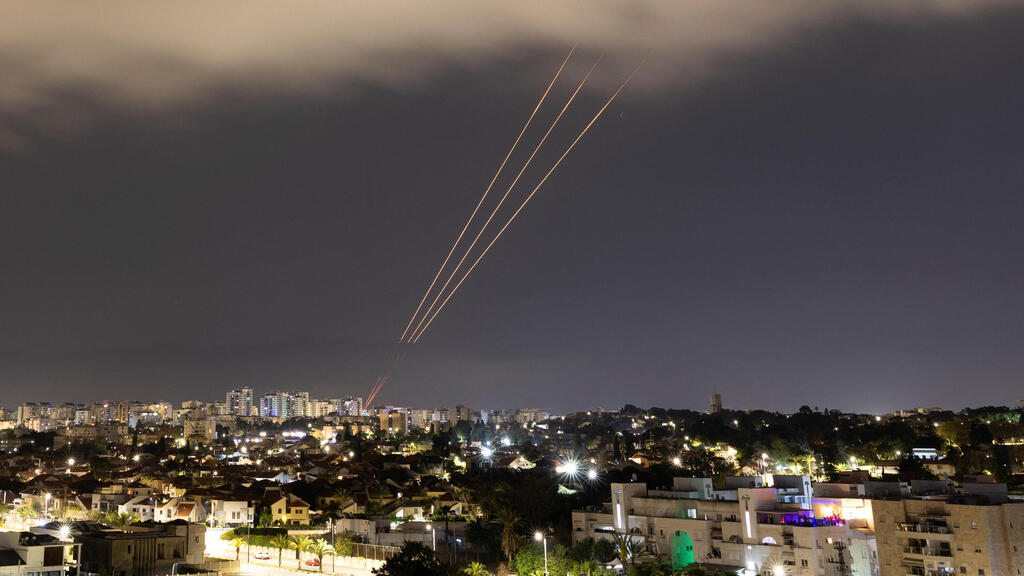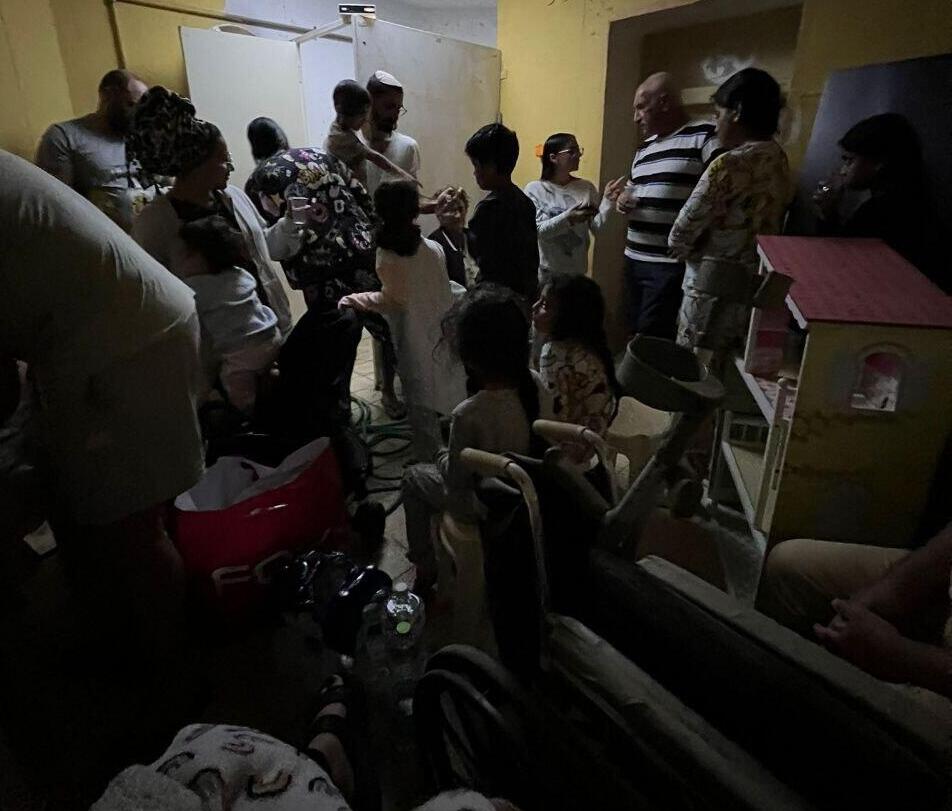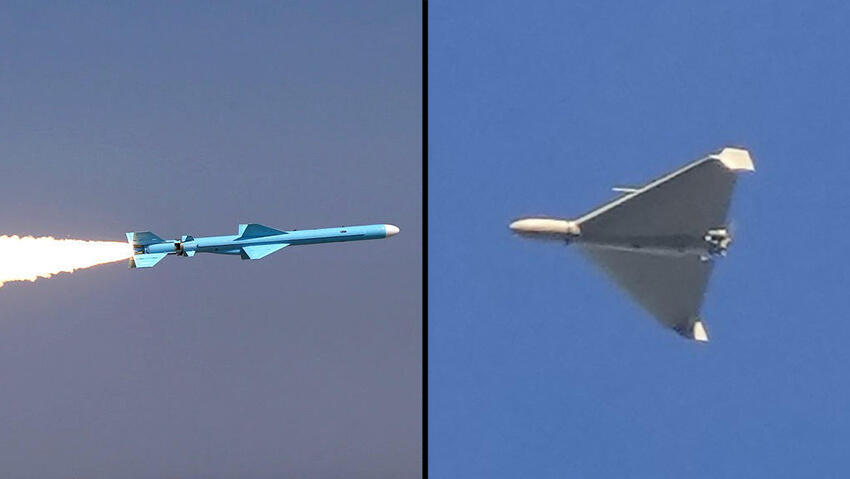Getting your Trinity Audio player ready...
Iran's unprecedented attack against Israel, which included over 300 aerial threats of which Israeli authorities say 99% were intercepted, marks a significant turning point. This event has reshaped ongoing regional tensions with a fresh perspective, and it could potentially alter Hezbollah's perception and future strategies regarding its prolonged war of attrition with Israel and the potential for an all-out war.
Hezbollah commended Iran's strike on Israel, hailing it as a courageous decision that marked a “new phase” in the conflict between Israel and the Palestinians, in a statement issued on Sunday, hours after the massive aerial barrage. “The operation precisely achieved its limited military objectives, despite the involvement of the United States, its allies and its regional tools in responding to the stunning attack...The long-term political and strategic objectives for this major development will be successfully apparent over time,” read the statement.
Military strategy and national security expert Dr. Omer Dostri, a researcher at the Jerusalem Institute for Strategy and Security and the Israel Defense and Security Forum-Habithonistim, says that Hezbollah “observed Iran's significant failure in contrast to Israel's notable success in intercepting 99% of Iran's missile launches and UAVs, with the assistance of its regional allies.”
“Hezbollah deduces from this that its own missile capabilities would be severely limited in a large-scale war against Israel, potentially dissuading it from initiating such a conflict,” he explains
Carmit Valensi, head of the Northern Arena program at the Institute for National Security Studies in Tel Aviv, agrees and highlights two points that the Saturday events demonstrated to Hezbollah.
One is the Israel Defense Forces' (IDF) high-level capabilities, “which include preliminary intelligence from the Military Intelligence Directorate, an effective detection system, and Israel's Air Force's excellent interception system.”
The second is the strong alliance between Israel and the United States. “This event highlights that the multifront campaign strategy adopted by the Axis of Resistance, led by Iran, was countered by an international and regional coalition collaborating to bolster air defense capabilities against Iran,” Valensi said, noting that this might present a significant obstacle for a successful campaign against Israel for actors belonging to Iran's block.
Beirut-based scholar Lorenzo Trombetta, who consults for the United Nations and international NGOs, says that Hezbollah and Iran are tightly connected. Therefore, he says that Hezbollah knew of the attack procedures and tactical details.
In this context, he continues, "Hezbollah closely observed the Israeli’s reaction to learn the timing and the modalities of interception of new-used weaponry launched by Iran on the Israeli territory." He adds that this enabled them to "increase their knowledge on how to to find weak spots in the Israeli defense system."
According to Dostri, Hezbollah will likely continue to closely monitor the incident and its consequences. Emphasizing the importance of Israel's reaction for drawing conclusions, he said that if Israel refrains from retaliating against Iran, “Hezbollah perceives this as a further weakening of Israeli deterrence, which could also impact its own deterrent capabilities.”
“Conversely, if Israel chooses to retaliate against Iran, it would have the opposite effect, strengthening Israeli deterrence, including vis-à-vis Hezbollah,” Dostri asserted.
Valensi agrees that both Iran and Hezbollah are likely conducting investigations into the operation to derive lessons from it. One of them, according to her, is the importance of the element of surprise and how impactful it can be in terms of Israel's defense.
“Iran didn't intend to cause significant damage to Israeli assets or incur losses, likely to avoid triggering an all-out war with Israel,” she said, arguing that this is the reason why Tehran made public announcements of the attack and its targets beforehand.
She compares this with the surprise element of Hamas' October 7 attack, which aimed to cause severe damage to Israel.
“I'm not certain that this event will deter Hezbollah from launching a war with Israel, as it likely has other considerations at this time not to go there. However, it will certainly prompt a revision of its operational plan, with an emphasis on maintaining the element of surprise,” she said.
Trombetta reiterated that both the U.S. and Iran, together with Israel and Hezbollah, do not want an all-out war, which will be devastating and will contribute to hastening the collapse of their respective power structures. On the contrary, he added, "Israel, Iran and its proxies need constantly to fuel the ‘external threat’ discourse prolonging this increasingly but controlled armed escalation without risking their own political/institutional stability."
An all-out war with Hezbollah would probably involve launching rockets and missiles at civilian targets, not limiting to only military targets as Iran did, Valensi asserts. "Therefore, it's more likely that the outcome would be more deadly if the Israeli defense system doesn't fully intercept," she added.
However, Dostri believes that, in terms of the attack style, Hezbollah's would be very similar to the one perpetrated by Tehran. “This would entail a coordinated assault involving UAVs, cruise missiles, and ballistic missiles, despite the understanding that such attacks may face limitations,” he said.
Dostri explained that the rationale behind this approach is that these are the primary assets that Hezbollah can leverage against Israel, especially considering that its Radwan Force has been pushed miles away from Lebanon's southern border, making it challenging for Hezbollah to mount an invasion of Israel.
Ironically, both Israel and Hezbollah seem to have drawn similar lessons from the recent Iranian missile attack, according to Valensi. “Like Hezbollah, Israel and its people received a reminder of the IDF's formidable power, a perception that may have been undermined after October 7; the importance of maintaining strong relations with the US was also underscored,” she said.
Additionally, she reiterated that the benefits of regional joint efforts to address the Iranian threat in the future were highlighted, framing it as a regional problem rather than solely Israel's concern. That is why she believes it is crucial that Israel invests greater efforts in maintaining its regional and global alliances.
This story is written by Debbie Mohnblatt and reprinted with permission from The Media Line





